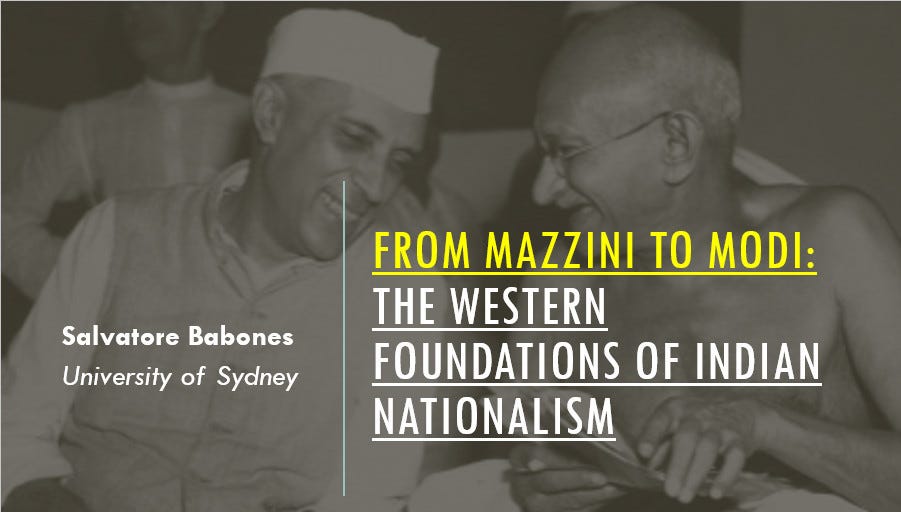On the Western Foundations of Indian Nationalism
As India celebrates 77 years of independence, a look at the construction of "India" as a national idea
Today, everyone knows what and where is the country called “India.” But India was not always India. For many Indians, it was (and is) “Bharat.” For others, most famously Winston Churchill, it was merely a “an abstraction”:
“India is no more a political personality than Europe. India is a geographical term. It is no more a united nation than the equator.” — Winston Churchil, 1931
As history played out, in 1947 British India was divided by majority religion, resulting in the horrors of Partition. But it could have been divided by language, or by geography, or by historical antecedents. Most of India’s Hindu independence leaders — Gandhi, Nehru, Savarkar, Ambedkar, Prasad, and others — wanted to inherit an undivided India. Jinnah, as head of the Muslim League, refused to play ball.
But 1947 wasn’t the first time India was divided. What is now Sri Lanka was hived off by having a different governance structure under the British crown from early in the nineteenth century. Burma was hived off in 1937 (a mere decade before independence) as a separate administrative unit. Nepal and Bhutan were allowed to remain dependencies by the British, and thus retained independent. The map could have been very different.
This Independence Day, I’ve recorded a video presentation explaining how the various bids for “nations” to be carved out of British India were informed by nineteenth century Western political theory and played out against the backdrop of World War One, the breakup of empires and the League of Nations:
Few people remember how prominent John Stuart Mill, Leo Tolstoy, and most of all Giuseppe Mazzini were in the minds of India’s independence leaders. To give just a tiny teaser: Gandhi traced his doctrine of non-violence to Mazzini, and Savarkar translated Mazzini into Marathi. It really is a fascinating bit of forgotten intellectual history.
The major faultlines of Indian politics today — the INC/BJP split — can be traced directly to differing conceptions of the Indian nation (and Muslims’ place in it). Those ideas of the nation themselves ultimately derive from different readings of Mazzini. I very much enjoyed telling a little piece of this story, and I hope you will enjoy watching it.
Happy Indian Independence Day. Jai Hind!
The Salvatore Babones Newsletter will return.


